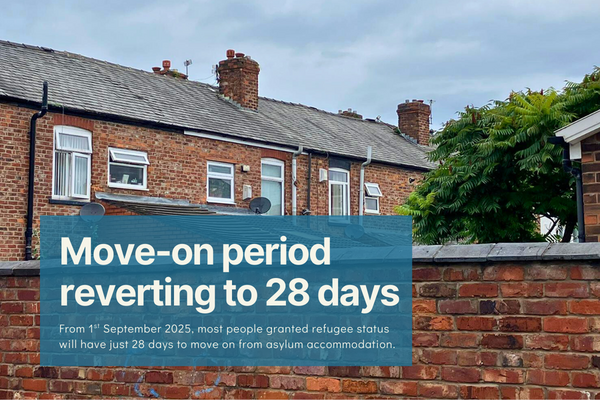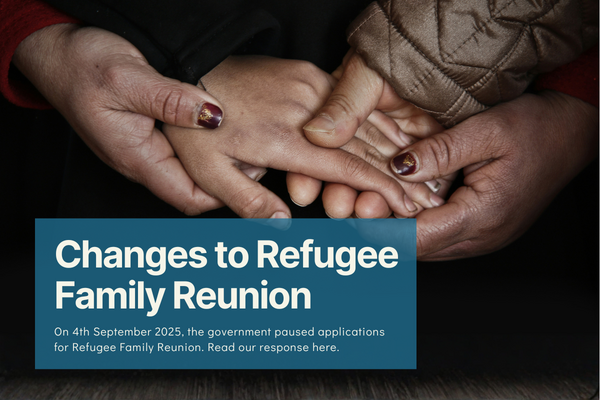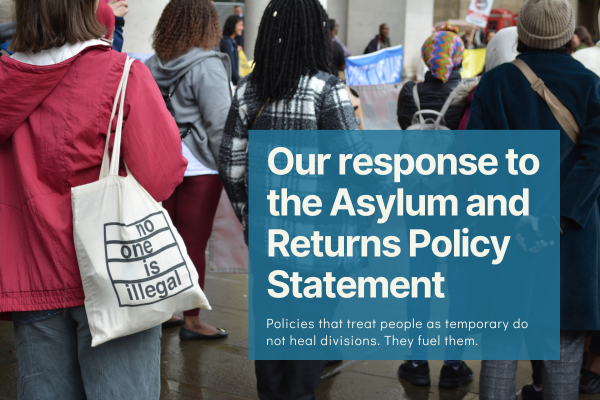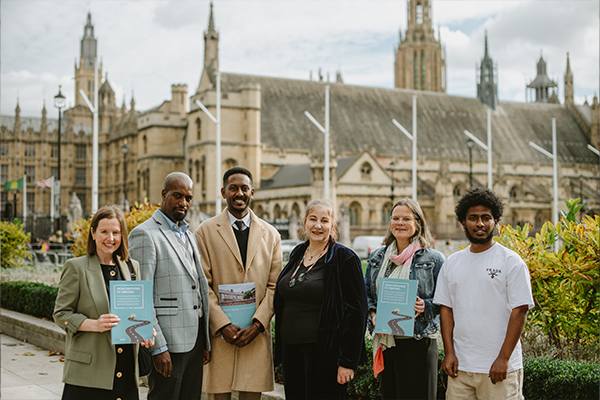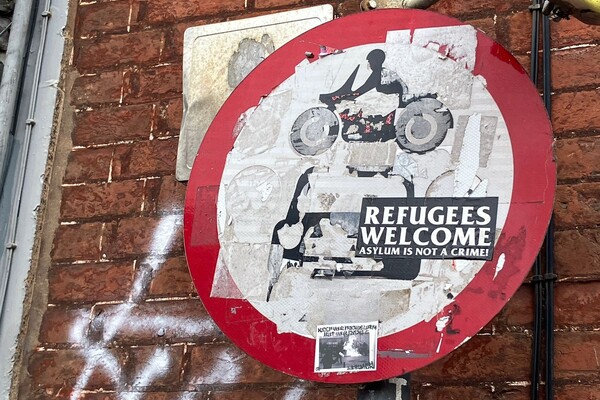Reducing the move-on period for people newly granted refugee status will lead to more people becoming homeless
Yesterday’s announcement by the Home Office to halve the time that people who have been granted refugee status are given to leave their asylum accommodation from 56 to 28 days is short-sighted and will lead to more people becoming homeless.
Our report, From surviving to thriving: preventing homelessness in Greater Manchester among people recently granted refugee status, published last month, demonstrated that the 28-day move-on period is characterised by overwhelming complexity and poor communication. Based on research with individuals who had received a positive decision on their asylum claim, the majority described experiencing homelessness after being granted status owing to the lack of support available during the transition period and the overwhelming complexity of administrative tasks required.
The move-on period was, until yesterday’s announcement, in a temporary extension to 56 days in recognition of the fact that 28 days is not nearly long enough for individuals to set up necessary administrative functions (such as opening a bank account and a Universal Credit account), understand and navigate the UK housing system and, subsequently, find and secure housing. We have previously written about the necessity of a longer move-on period.
As our recent report highlighted, a longer move-on period – coupled with administrative support to, in particular, find housing – has a significantly positive impact, benefitting individuals and society as a whole.
The decision by the Home Office to revert to a 28-day move-on period, in an attempt to reduce the number of individuals staying in asylum hotels, will impede upon people’s ability to rebuild their lives. Furthermore, and crucially, more people will be forced to sleep outside and will be at risk of exploitation and abuse. This is of particular concern to us, especially in the current climate where hostility towards people seeking asylum (as well as racialised communities more broadly) is growing, and the far right is becoming ever more emboldened.
We know that homelessness among individuals newly granted refugee status is a deeply complex issue, which is rooted in the dysfunction of the asylum system itself and the challenges of the move-on period. We and many others in the sector have repeatedly advocated for a permanent extension of the move-on period to 56 days.
To understand more about the issues facing people newly granted refugee status, and how we are working to address these challenges, read our report in full or our shorter policy briefing.

